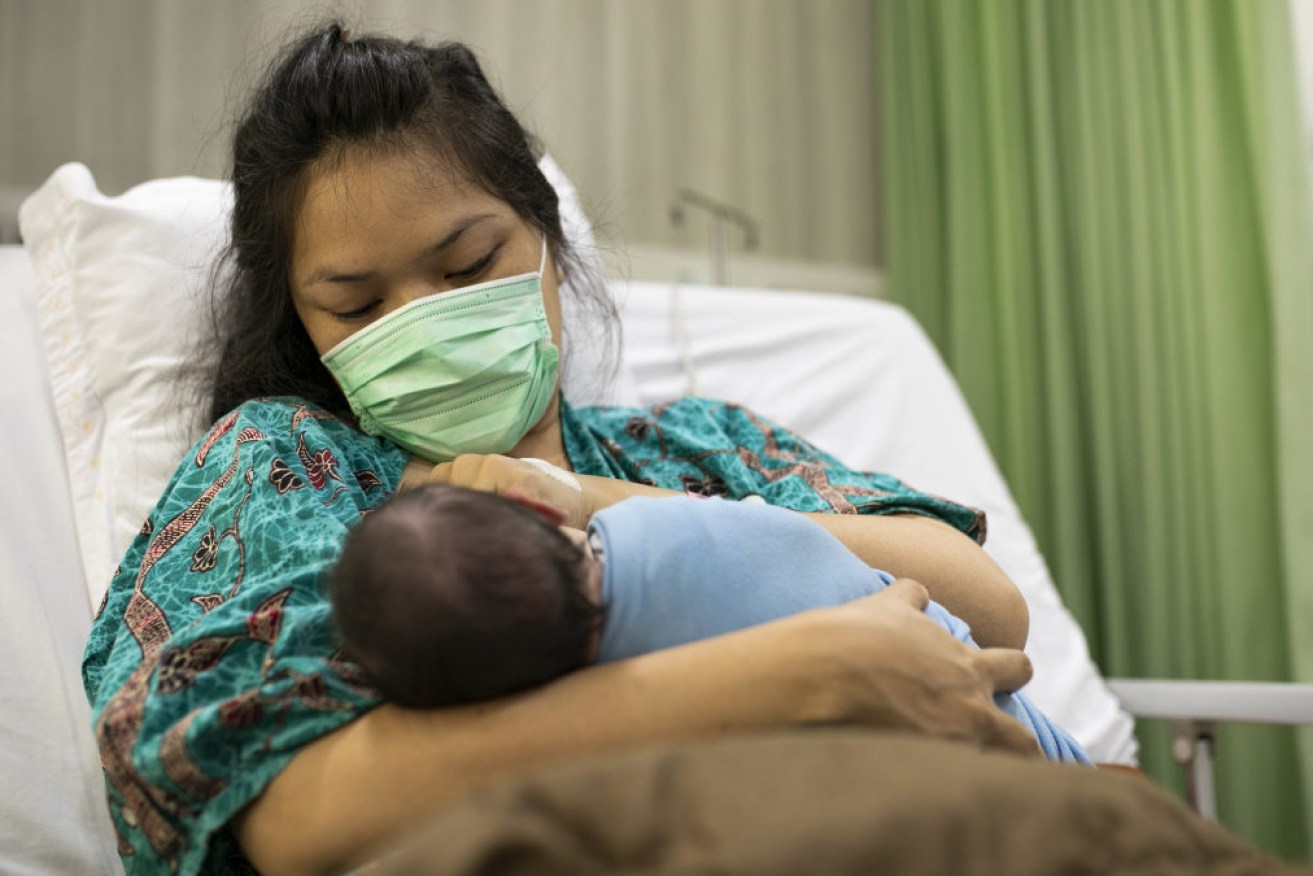‘I lost my pregnant wife and our unborn child’: Pregnant women with COVID-19 are 20 times more likely to die


Pregnant women are no more likely to get COVID-19, but if they get it, they are more likely to become very ill and require ICU care. Photo: Getty
In the first months of the COVID-19 pandemic, pregnant women were found to be at no greater risk of catching the virus – and there was a belief they would become no more ill than any other healthy person.
At least that was the widely reported perception in Australia, where the number of cases have, overall, been relatively small.
Now, heartbreaking stories from families who have lost female relatives are highlighting the frightening reality for expectant mothers who contract COVID-19.
In one recent video released by a grieving husband and father in India, a pregnant woman pleads with the public to continue taking the coronavirus seriously.
“Please don’t take corona so lightly,” says Dimple Arora Chawla, a dentist in New Delhi who was expecting her second child.
“Please, please take care.”
Nine days after recording the video, both Dr Chawla and her baby were dead.
I lost my pregnant wife and our unborn child to covid
She breathed her last on 26/4/21 and our unborn child a day earlier. She got covid positive on 11/4 and even during her suffering she had made the above video on 17/4 warning others not to take this covid lightly. #CovidIndia pic.twitter.com/Syg6yddMTD
— Ravish Chawla (@ravish_chawla) May 9, 2021
Her husband, Ravish Chawla, told Indian media there had been a lack of information about COVID-19 treatments for pregnant women.
“I lost my pregnant wife and our unborn child to COVID,” Mr Chawla said in a Twitter post.
His wife’s condition had deteriorated so badly that she required an emergency caesarean, he said.
The baby did not survive, and a day later Dr Chawla lost her battle with the virus.
To this day, fact sheets on Australian hospital websites continue to advise that pregnant women are at no greater risk of contracting COVID-19.
But new research suggests that pregnant women who do get the coronavirus could face a greater chance of complications and death.
The worldwide study of 2100 pregnant women found that expectant mothers who contracted COVID-19 were 20 times more likely to die than those who did not contract the virus.
The study – by doctors at the University of Washington School of Medicine and University of Oxford – was the first of its kind, involving more than 100 researchers and pregnant women from 43 maternity hospitals in 18 low, middle and high-income nations.
The research was conducted between April and August of 2020.
How the study was unique
According to a statement from the University of Washington, the study was unique “because each woman affected by COVID-19 was compared with two uninfected pregnant women who gave birth during the same span in the same hospital”.
Aside from an increased risk of death, women and their newborns were also more likely to experience preterm birth, preeclampsia (a pregnancy complication characterised by high blood pressure and signs of organ damage, most often the liver and kidneys), admission to the Intensive Care Unit and intubation.
Of the mothers who tested positive for the disease, 11.5 per cent of their babies also tested positive, the study found.
Dr Michael Gravett is a professor of obstetrics and gynaecology at the University of Washington School of Medicine, and one of the study’s lead authors. He said:
“The No.1 takeaway from the research is that pregnant women are no more likely to get COVID-19, but if they get it, they are more likely to become very ill and more likely to require ICU care, ventilation, or experience preterm birth and preeclampsia.”
On the upside, women whose COVID-19 was asymptomatic or mild were not found to be at increased risk for ICU care, preterm birth or preeclampsia.
About 40 per cent of the women in this study were asymptomatic.
What about the babies?
Babies of the women infected with COVID-19 were “more likely to be born preterm”, but their infections were usually mild.
Breastfeeding seemed not to be related to transmitting the disease.
Delivery by Caesarean section, however, might be associated with an increased risk of having an infected newborn, the study found.
Dr Gravett suggested that these and parallel research findings were so compelling that health authorities should be opening up vaccine eligibility to pregnant women – a group initially considered a population at low risk for severe COVID-19.
Based on the research, “I would highly recommend that all pregnant women receive the COVID-19 vaccines,” he said.
Researchers were able to complete the investigation and report findings in only nine months, using infrastructure already in place from the INTERGROWTH-21st Project, which began in 2012 to study foetal growth and neonatal outcomes.








